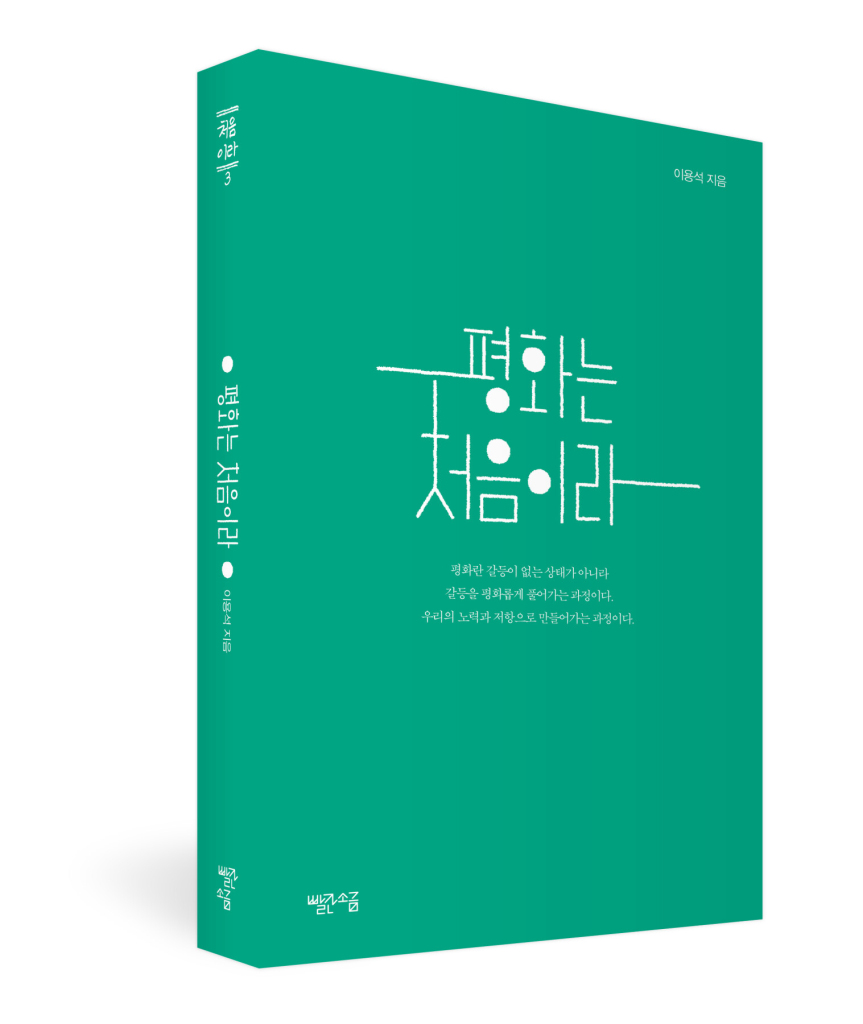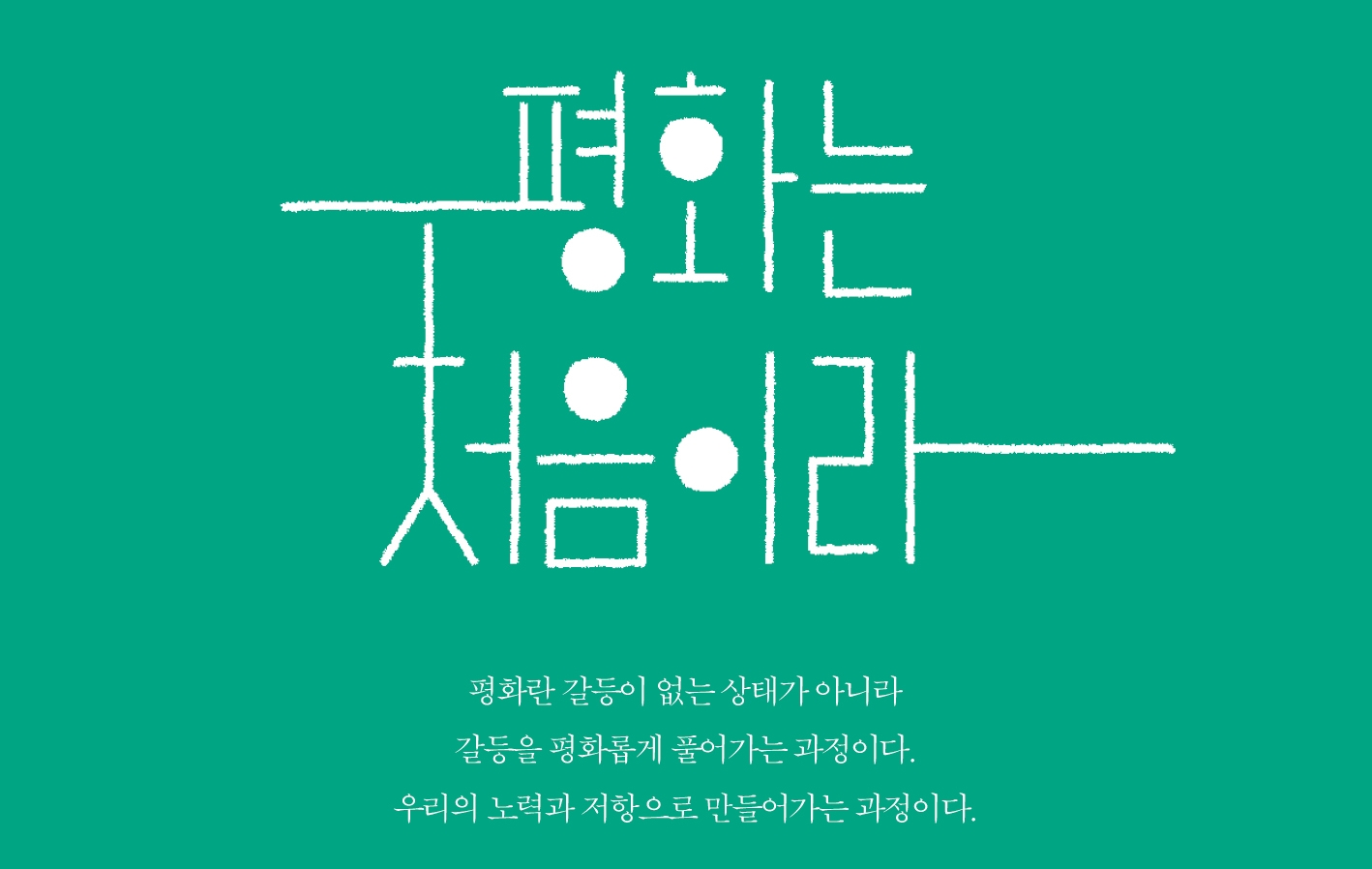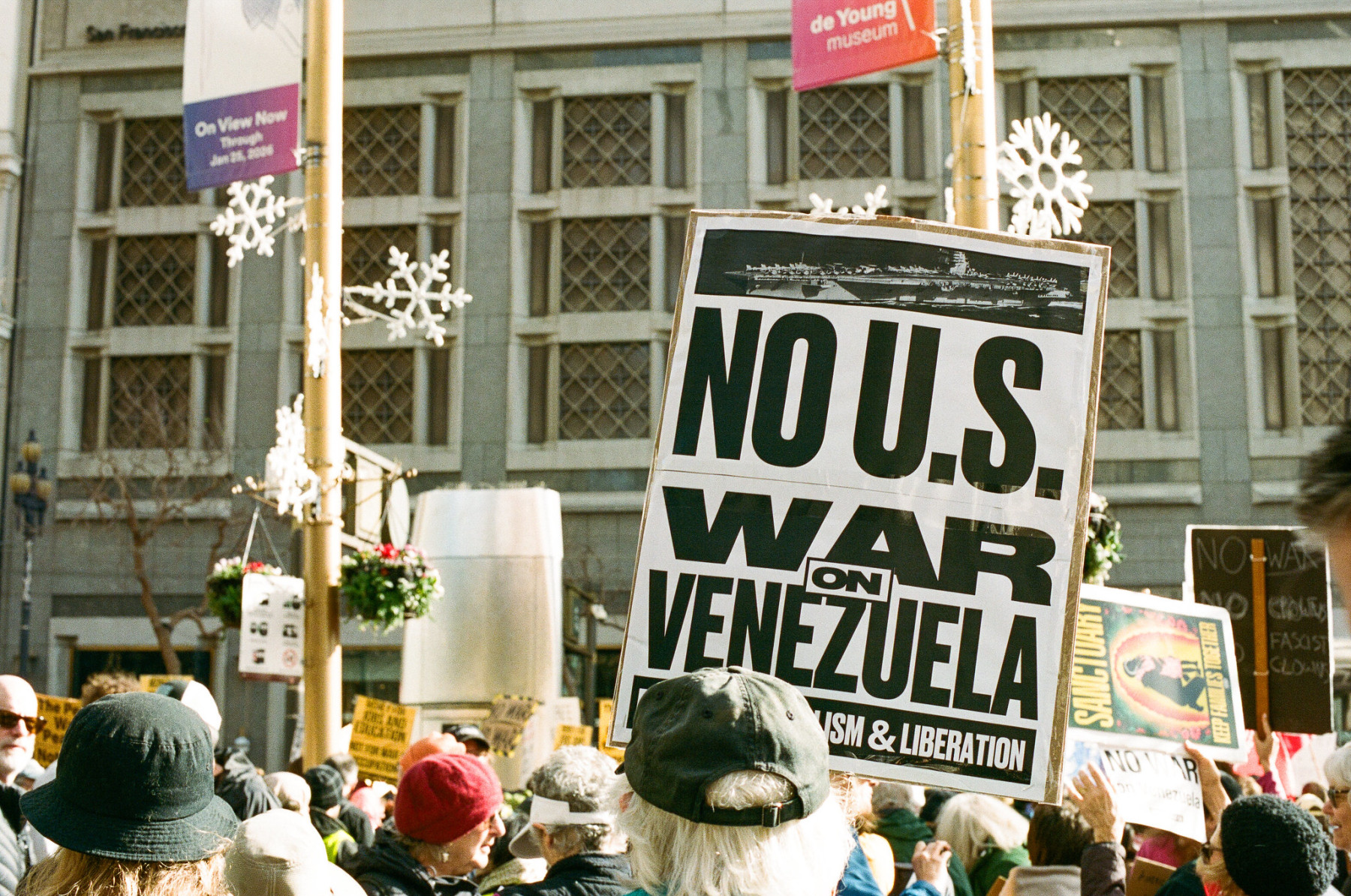오스틴 헤드릭(피스모모 평화/교육연구소 상임연구원)
번역: 뭉치(전쟁없는세상 활동가)
북토크에 참가하기 전에 <평화는 처음이라>를 미처 읽어보지는 못했다. 그럼에도 패널들의 이야기로부터 많이 배우고 평화운동 전반, 특히 군축과 양심적 병역거부 운동에 대한 이해를 높일 수 있을 거라고 생각했다. 북토크에서 가장 인상 깊었던 세 가지는 ‘평화운동 이슈에 대해 반복적으로 이야기해야 할 필요성’, ‘평화운동에서 다양성을 인정해야 한다는 것’, 그리고 ‘북토크 자체의 형식’이었다.
북토크의 형식은 내가 지금까지 참석했던 다른 북토크들과는 약간 달랐다. 저자가 중심적으로 이야기를 하기보다는 세 명의 패널, 이용석 (<평화는 처음이라> 저자), 가람 (피스모모 피스페미니즘연구소 연구위원), 황수영 (참여연대 평화군축센터 팀장)이 함께 이야기를 이끌었다. 이 형식은 패널들이 즉흥적으로 의견을 주고 받으며 깊은 토론을 할 수 있게 했다. 각각 다른 단체에서 활동하며 조금씩 다른 평화운동의 영역에 집중하고 있는 세 명의 패널들은 저마다 독특하고 다양한 평화운동의 측면들을 볼 수 있게 해주었다. 사회자였던 임재성(변호사, 시사직격 MC) 역시 패널들의 대화의 흐름을 유지하면서 그가 평화운동에 함께 하며 느낀 통찰을 이야기 중간중간에 생생하게 불어넣어주었다.
패널 중 한 명은 그 어떤 단체나 사람도 평화라는 단어를 독점할 수 없다고 말했다. 평화운동 안에서의 다양성이 중요하고, 각기 다른 단체들이 경쟁하기보다는 서로 지지하고 보완해주는 방식을 이해해야 한다고 강조했다. 세 명의 패널들이 모두 다른 단체에 소속되어 조금씩 다른 영역에서 각자의 전문성을 가지고 활동하고 있다는 사실이 이를 뒷받침하고 있었다. 한 패널은 평화활동가들이 더 나은 사회를 위한 비전을 공유하면서도 때때로 대립하기도 한다고 말했다. 북토크의 중심주제는 아니었지만, 평화운동 그룹들이 각자의 그룹 내에서, 혹은 다른 그룹들과 함께 평화를 가꿔가는 이야기를 더 듣고 싶어졌다.
패널 중 한 명은 여성징병제를 둘러싼 최근의 논란을 언급하며 같은 이야기를 계속해서 하는 데 지루함을 느끼곤 한다고 말했다. 그러나 더 깊이 생각해보면서 징병제에 관한 같은 질문과 논쟁이 반복된다는 것은 이것이 여전히 해결되지 않은 문제로 남아있기 때문이라는 것을 깨달았다고 했다. 내게 이 말은 정말 크게 와닿았다. 더 나은 세상을 위해 상상하고 일하는 사람들에게는 끈기가 요구된다는 것을 깨닫게 되었다. 한 참가자는 패널들이 평화에 대해 설명하는 것이 큰 패러다임의 전환을 요구한다고 생각되어 반발심 같은 것을 느끼기도 했다고 말했다. 패러다임의 전환을 위해서는 차근차근 대화를 반복하면서 먼 지평선을 향해 점차 나아갈 수 있는 능력, 즉 새로운 끈기가 필요한 게 아닐까 하고 생각했다.
이 책과 책이 다루는 이슈들에 대해 이야기를 듣고 나니 책을 꼭 읽어봐야겠다는 생각이 들었다. 북토크에서 나눴던 이야기들로 미뤄 짐작해보면 이 책은 많은 대중에게 쉽게 다가갈 수 있는 책이라고 생각한다. 한국에서 평화이슈들에 대해 필요한 논의들이 활발해지는 데 이 책이 좋은 자료로서 활용되길 바란다.

———–
Although I haven’t had a chance to read <Hello Peace> I still felt like I was able to learn a lot from the book talk panel and gain a lot of insight into issues about the peace movement in general and the disarmament and conscientious objector movements specifically. The three things that stood out to me about the book talk the most were the need to have repeated conversations, the need to recognize diversity in the peace movement, and the format of the talk itself.
The format of the talk was slightly different than other book talks I’ve seen. Rather than having the author be the primary speaker, there was a three person panel with Yongsuk Lee(author of
<Hello Peace>), Garam (a member of Peace Momo Peace’s Feminist Research Lab), and Sooyoung Hwang(Head of People's Solidarity for Participatory Democracy’s Peace Disarmament Center). This format allowed for a very robust discussion and spontaneous back and forth between the panelists. Given that the three panelists work in different organizations and focus on slightly different aspects of the peace movement, they each brought a unique perspective. I also felt that the MC, Jaesung Lim, kept a good flow in the dialogue and interjected his own insights in a manner than made the talk lively.
Secondly, one of the panelists raised the point that no one organization or person can monopolize the word peace. I appreciated this point because it highlights the diversity inherent in the peace movement and also the need to understand the ways different organizations support and supplement each other, rather than compete. The fact that the three panelists are affiliated with different organizations and have different areas of expertise points to this fact. The point was also added by one of the panelists that organizations or people within the peace movement can, at times, be at odds with each other despite sharing a similar vision for a better society. While it wasn’t the main focus of the book talk, I would have enjoyed hearing the panelists address the topic of cultivating
peace within and between groups in the peace movement in more depth.
Lastly, in reference to the recent public discourse surrounding women’s military conscription, one of the panelists said that initially she felt a sense of tediousness in having to have these conversations over and over again. But upon further reflection she realized that the fact that questions are still being raised and the discourse around military conscription is still ongoing means hat it’s still and issue that needs to be solved. This comment resonated with me because it helped me understand the tenacity needed by those trying to imagine and work towards a better society. One of the participants shared that she felt that what the panelists were describing when they discussed peace required a major paradigm shift, which gave rise to a bit of resistance within her.
Leaving the book talk I wondered if part of this paradigm shift may be the need to develop a new sense of tenacity—an ability to move gradually towards a distant horizon one repeated onversation at a time. After hearing more about <Hello Peace> and the issues it discusses I definitely plan to pick up a copy. Based on the discussion during the book talk, the book seems accessible to a wide audience. I hope it becomes a resource that stimulates much needed discussion about peace issues in Korea!








![[성명] 미얀마 군부 쿠데타 5년: 징병제 부활로 심화되는 인권 위기](https://withoutwar.org/www_wp/wp-content/uploads/2026/01/myanmar-45x45.png)
![[국제공동성명] 병역거부자이자 인권활동가, 유리 셸리아젠코 탄압에 대한 긴급 성명](https://withoutwar.org/www_wp/wp-content/uploads/2026/01/123123-45x45.jpg)
![[보도자료] 대체복무제도 개선방향 모색을 위한 국회 토론회](https://withoutwar.org/www_wp/wp-content/uploads/2026/01/IMG_8696-45x45.jpg)
![[성명] 병역거부자를 가두는 나라에 양심의 자유는 존재하지 않는다 – 병역거부자 나단의 항소심 유죄 선고에 부쳐](https://withoutwar.org/www_wp/wp-content/uploads/2026/01/nadan-45x45.jpg)
![[평화를 살다] “요리하고 먹고 저항하라” – 팔라펠과 후무스](https://withoutwar.org/www_wp/wp-content/uploads/2026/02/5-45x45.jpg)
![[평화를 읽다] 역사를 품은 그림, 쓸쓸함을 알아차리는 다정함 – 『어느 쓸쓸한 그림 이야기』를 읽고](https://withoutwar.org/www_wp/wp-content/uploads/2026/02/book-45x45.jpg)

